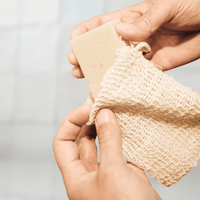
A pollinator is an animal that helps move pollen from the male structures of a flower, to the female structures of a flower. This fertilization allows the plant to start its reproductive cycle to create fruits and seeds. To pollinate the plant, the pollinator must touch the flower parts of many plants.
Pollinators play a vital role in our ecosystem and are responsible in assisting with pollinating 80% of the world’s flowering plants. Without them, humans nor wildlife would have enough food. Honey bees are normally perceived as the most popular or common pollinator although there are many more: ants, bats, bees, beetles, birds, butterflies, flies, moths, and wasps.
Why Do We Need Pollinators?
There are some plants, such as soybeans, that do not require pollination and other plants that receive enough pollination from the wind blowing. Majority of the food humans consume, however, is heavily dependent on pollination. In a world without insect pollination, we would no longer have watermelon, squash, pumpkin, cucumber, blueberry, raspberry, blackberry or apples (including so many more).
While certain plants can still grow their fruits without commercial pollination, overall the enormous agricultural sector heavily depends on regular pollination. Current estimates by the Environmental Protection Agency show that pollinators contribute over $15 billion to the United States economy, if one is being conservative. There is an estimated 300,000 plant species that require animal pollinators. This enormous floral variety requires a similarly diverse variety of pollinators with some estimates showing that there can be up to 16,000 species of different bees world-wide.
Bees are typically the species our mind conjures up when first considering pollination, however there are many different pollinators that are also facing environmental and population concerns. In 2016, Seven species of Hawaiian yellow-faced bees were added to the endangered species list. This has brought up world wide concern about the populations of our pollinators, who are suffering due to increasing uses of pesticides and climate change. Since 2013, bee populations in some parts of the world dropped by one third.
Is there anything you & I can do to help? Of course there is! Below is our list of 7 ways you can help save our pollinators.

1. Plant Flowering Plants and Avoid Pesticides
If you have a garden, you can help pollinators by planting native flowering plants in your garden. This will support local bee colonies with an additional source of food. Check out these guides on ways you can plant native, bee-friendly plants for your community’s pollinator population.

2. Avoid Importing Honey
Bee colonies in your home country tend to be sensitive to the bacteria and diseases, particularly unknown viruses which are easily transported from abroad. Bringing foreign honey can carry life threatening bacteria to a new colony, potentially spreading and killing masses at a time. This is one of the reasons why food quarantine laws are so strict in many places around the world. If you do want to support ethical beekeepers, make sure you do your research and buy local!

3. Buy Local & Organic
Another great way to help pollinators is to head down to your local farmers market and buy your food straight from the source. While you’re there, make an effort to buy organic, too! Have a chat with your farmer and find out what techniques they are using to grow their foods. Buying local means buying seasonal, supporting local small businesses that care about ethical, safe farming all while benefiting your own and local pollinator health.

4. Let Weeds Grow
Did you know there is no such thing as a weed? It is merely a plant, humans have decided they prefer less than whatever they are growing next to it. A ‘weed’ is typically a hardy plant which can grow in harsh conditions and would therefore potentially stifle more sensitive ‘preferred’ plants. However commonly considered weeds such as wild flowers like dandelions are important food sources food for pollinators and are part of a healthy plant ecosystem. Make sure you avoid pesticide use!

5. Let Them Bee
While having a buzzing insect around your head can be unnerving, remember that a giant human waving around a flip flop probably looks a lot more threatening to an insect. Most insects are typically not looking for a fight. Stay calm if one comes near & remember that they help you!

6. Give Them Water
Due to increasing human density populations, in many cities and suburbs there are very little fresh water sources left for pollinators to rehydrate at. Especially during hot summers, you can help this by placing a little water basin in your garden to allow bees and other insects to have a quick drink. A bird bath works best as the stones allow for the creatures to find their way out.

7. Share Solutions and Information with Others
We have the power to guide which way we want our planet to go - it is up to all of us to consider solutions and aid for the animals in need. Get your friends and family involved and learn about the importance of pollinators together. Share your garden tips and tricks, educate people on the use of pesticide in their garden,and recommend your favorite books, documentaries & blog posts on the subject. Let your government know you care by signing petitions, writing letters and getting involved.
Sources:
https://onlinelibrary.wiley.com/doi/abs/10.1111/j.1600-0706.2010.18644.x
https://www.gpo.gov/fdsys/pkg/FR-2016-09-30/pdf/2016-23112.pdf





